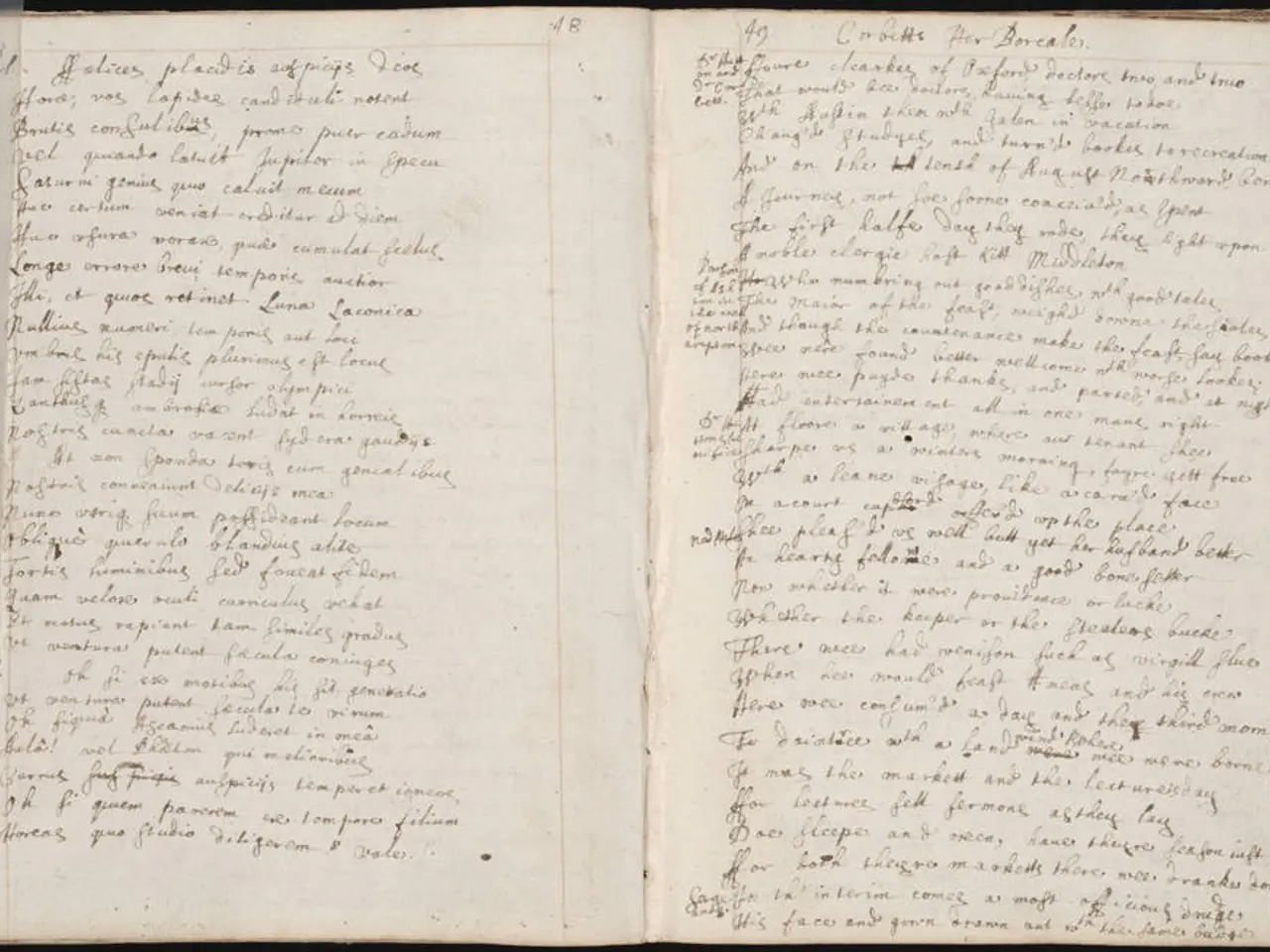Strategies for Composing a History Essay, Revealed by a History Scholar
Writing a history paper can be an exciting and rewarding experience for students. Here are some essential tips to help you navigate the process and produce a well-written history essay.
Firstly, choosing a suitable topic is crucial. You can ask your professor for recommendations, start with sources, or consider a debate. It's also advisable to run your chosen topic by the professor for feedback.
Once you have your topic, creating an outline is recommended. Your outline should consider the argument of the paper, and it can be based on the primary source quotations planned for the paper. The outline serves as a roadmap for your essay, helping you organise your thoughts and ensure a logical flow.
The argument is essential in a history paper. Write your history essay as a lawyer would a case, with the introduction serving as the opening statement, body paragraphs as evidence, and the conclusion as the closing statement. The conclusion should tie the evidence back to the central argument or thesis statement.
The first draft of a history essay should not be perfect; it can be polished during revisions. The second draft is for revising, looking for errors, incomplete sentences, missing footnotes, and ensuring the argument and evidence are strong. Taking a day off from the paper and coming back to it with fresh eyes can help during revisions.
Addressing counterarguments in a history essay can make it stronger. It shows that you have considered alternative perspectives and have a solid understanding of the topic.
Writing a history essay involves understanding the format of the paper. A history paper consists of an introduction, body paragraphs, and a conclusion. Guidance from a history professor can be sought when needed.
Asking someone to read the history essay can help improve it. They can provide valuable feedback and help you identify any areas that may need improvement.
Narrowing the central question of a history essay can make it stronger. A focused essay is easier to write and reads more coherently.
The introduction of a history essay is crucial and determines the final grade. It should set up the scope, central question, approach, and argument of the essay. Creating an outline before starting the first draft is recommended. The rough draft of a history essay can be started after planning and outlining.
Incorporate quotes into the body paragraphs of the history essay and analyse them. This helps to support your argument and adds credibility to your essay.
Remember, the most common types of history papers are persuasive essays and research papers. Some students prefer writing the body paragraphs first, while others prefer writing the introduction first.
In conclusion, writing a history essay can be a challenging task, but with careful planning, organisation, and attention to detail, you can produce a well-written and informative essay. Seek guidance from your professor when needed, and don't forget to ask someone to read your essay before submitting it. Good luck with your history paper!
Read also:
- Postpartum Period and Gestational Diabetes: Does it Persist?
- Controlled spree of Legionnaires' disease among Harlem residents ceased, city health authorities confirm; however, locals push for increased openness and information disclosure
- Transform City for the Better
- Prostate Cancer Examination Guidelines, Outcomes, and Financial Aspects




